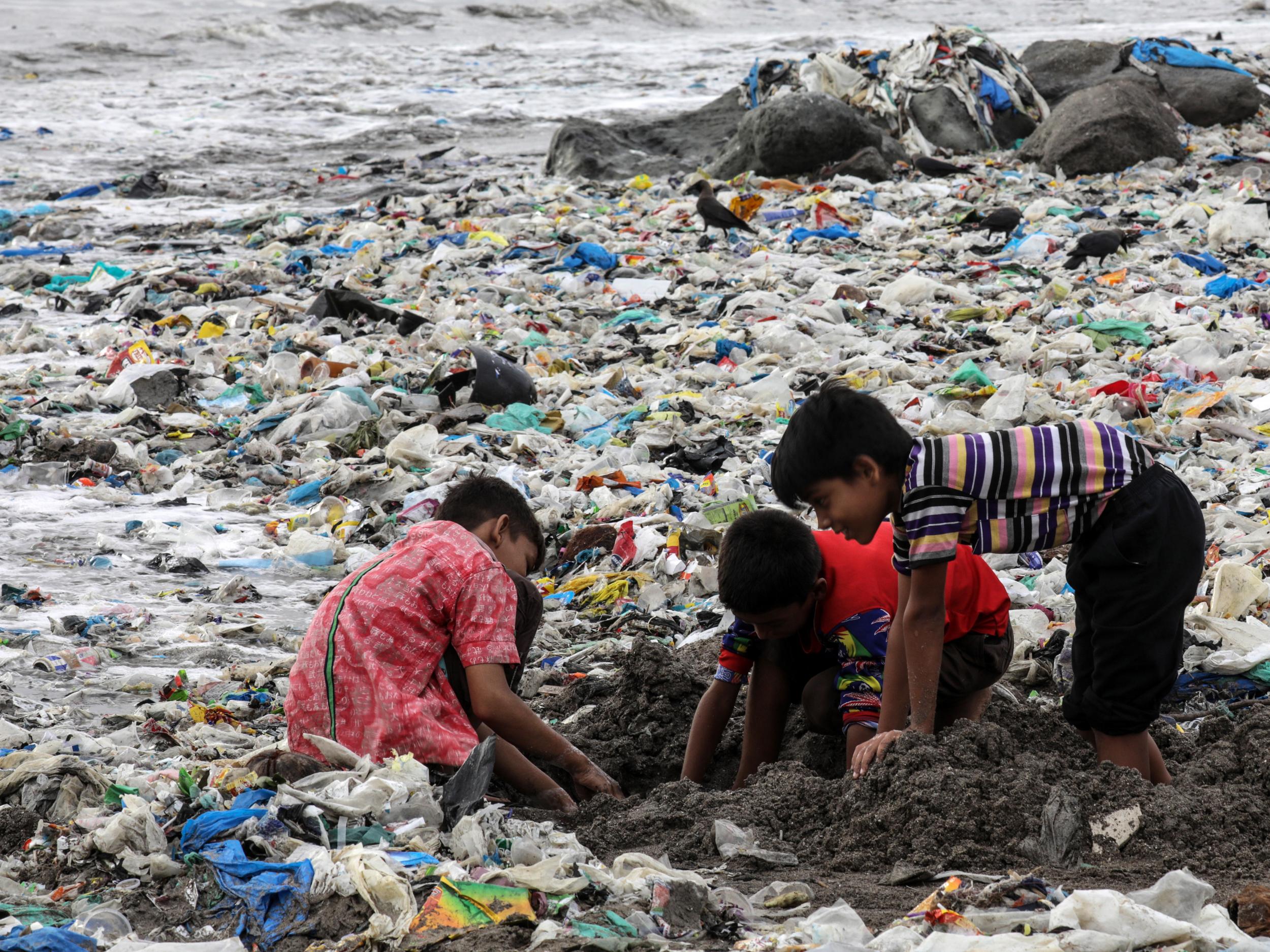Climate change: Global plastic waste on course to increase six-fold by 2030, scientists warn
In less than a decade more than 53 million metric tons of waste could be pouring into environments each year, modelling shows

Your support helps us to tell the story
From reproductive rights to climate change to Big Tech, The Independent is on the ground when the story is developing. Whether it's investigating the financials of Elon Musk's pro-Trump PAC or producing our latest documentary, 'The A Word', which shines a light on the American women fighting for reproductive rights, we know how important it is to parse out the facts from the messaging.
At such a critical moment in US history, we need reporters on the ground. Your donation allows us to keep sending journalists to speak to both sides of the story.
The Independent is trusted by Americans across the entire political spectrum. And unlike many other quality news outlets, we choose not to lock Americans out of our reporting and analysis with paywalls. We believe quality journalism should be available to everyone, paid for by those who can afford it.
Your support makes all the difference.Despite numerous global commitments to address the vast amounts of plastic impacting environments around the world, growth in plastic waste is still outpacing reduction efforts, and even if governments stuck to existing guidelines, annual plastic emissions are on course to increase more than six-fold by 2030, according to a new study.
The global analysis of the volume of plastics being produced and polluting our planet, evaluated the means by which we may be able to achieve a global reduction in plastic pollution, and assessed the relative impacts of interventions such as banning plastic bags and straws.
It is currently estimated that around eight million metric tons of plastic waste enters the world's oceans, lakes and rivers every year.
But using new mathematical models, the latest study estimates that by 2030, the annual plastic waste of 173 countries could increase to 53 million metric tons.
The study modeled future scenarios to achieve a global reduction target of less than 8 million metric tons by 2030 using existing mitigation strategies which include: reducing plastic waste, which includes bans on plastic; improving waste management; and environmental clean-up.
To reach this goal, the study found a 25 to 40 per cent reduction in plastic waste would be required, plastic waste management would have to increase from 6 to 60 per cent in low-income economies, and a clean-up of 40 per cent of annual plastic emissions would be needed.
The study shows that unless growth in plastic production and use is halted, which the scientists described as an “unlikely scenario”, a fundamental transformation of the plastics economy is essential. This would mean “end-of-life plastic products are valued rather than discarded as waste”.
Leah Gerber, professor of conservation science at Arizona State University and co-investigator on the study said: “There's a lot of popular attention toward clean up, but there hasn't been as much attention to the fact that we're still producing large quantities of plastic.
“Where there's not good infrastructure, that plastic is making its way into marine and aquatic habitats.”
Plastics are slow to degrade, and even when they do, bits of them, known as microplastics, make their way into the aquatic food chain, and eventually into humans.
The “Great Pacific Garbage Patch” - an enormous raft of plastic waste floating in the sea is located between California and Hawaii and embodies the worsening crisis of global plastic pollution.
The patch is said to cover 1.6 million square kilometres, an area about 8 times the size of Wales.
The study’s authors suggest that to achieve a substantial reduction in global plastic emissions requires “meaningful policy change”.
This could include reducing or eliminating unnecessary plastics, establishing global limits for new plastics production, creating global standards that ensure plastics are recoverable and recyclable and developing and scaling plastic processing and recycling technologies.
“In the US we’re huge consumers of single-use plastic,” said Professor Gerber.
“I'm hopeful that our findings will get people to rethink these consumption patterns. Even here in Arizona, the choices we make impact the future of our oceans.”
The warning from the researchers comes amid increasing concern the rise in production of gloves, disposable masks and extra food packaging in response to the Coronavirus pandemic is already causing harm to wildlife, according to the RSPCA.
The research is published in the journal Science.




Join our commenting forum
Join thought-provoking conversations, follow other Independent readers and see their replies
Comments